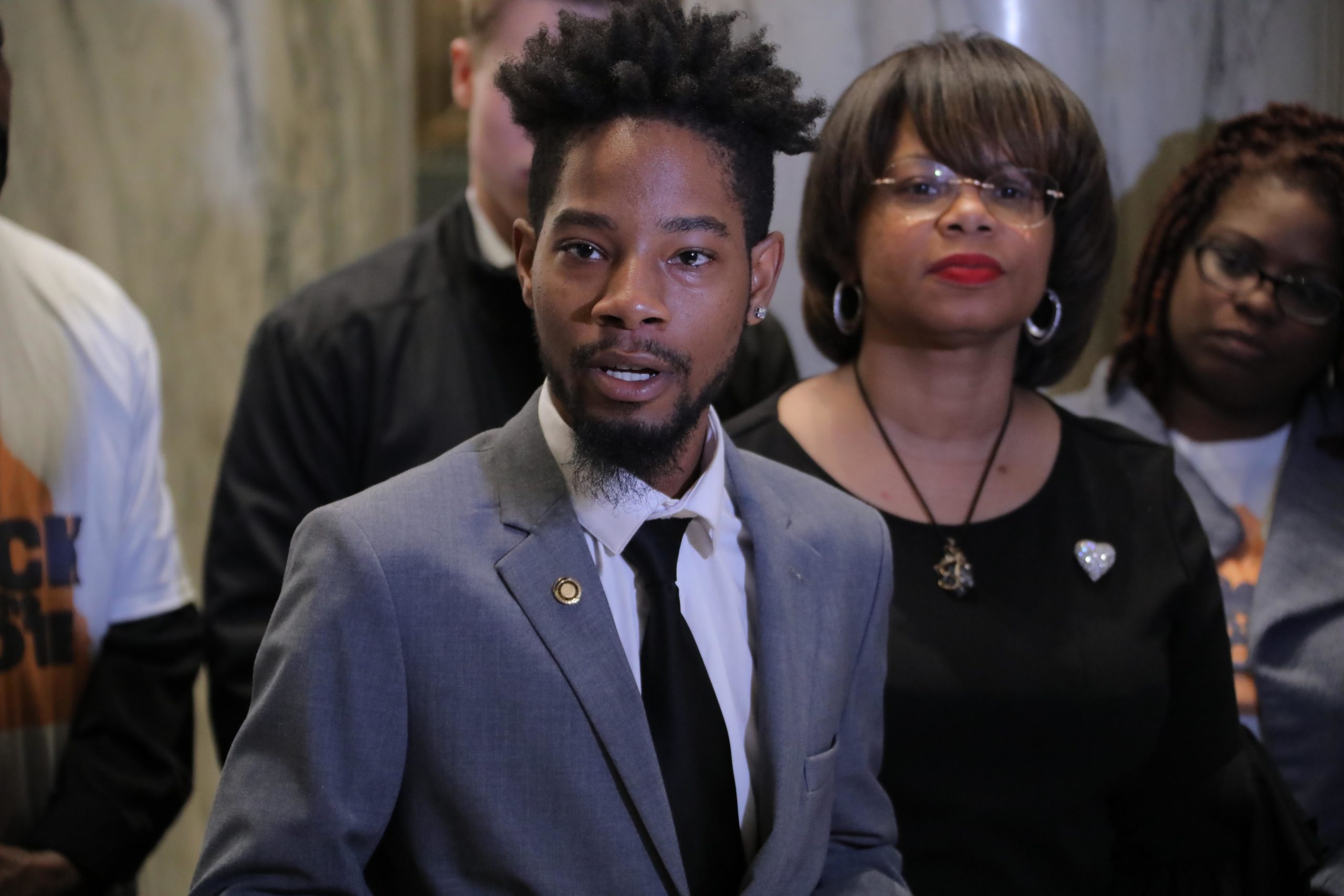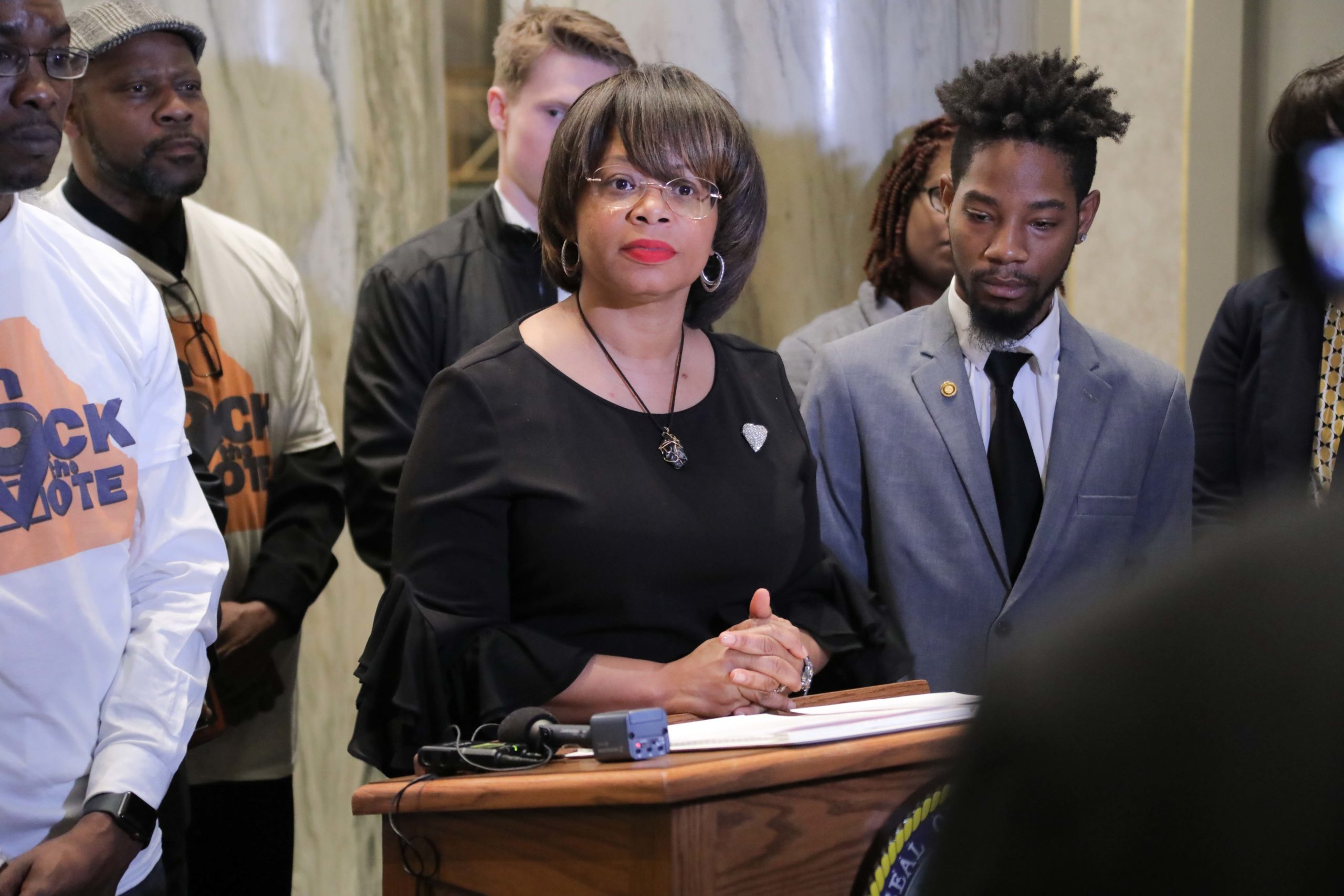JEFFERSON CITY, Mo. — It’s Sen. Jamilah Nasheed’s final year in the General Assembly, but she isn’t slowing down. Instead, she’s whipping votes to get a bill she’s dubbed her “legacy legislation” out of a committee and through the General Assembly.
SB 542 would restore voting rights to most Missourians who are on probation or parole — an undertaking that would impact more than 60,000 individuals, according to the bill’s fiscal note.
“We’re talking about individuals who wake up every morning, who go to work, who pay their taxes, who still and yet have no say when it comes to representation,” Nasheed told reporters Wednesday morning. “In my opinion, that is taxation without representation. Enough is enough.”
The bill has the backing of the ACLU of Missouri, EX-Incarcerated People Organizing (EXPO), and the Metropolitan Congregations United (MCU). It has been referred to the Senate Judiciary and Civil and Criminal Jurisprudence Committee; Nasheed said she is still whipping votes but believes she needs just one more before it can move out of committee and onto the Senate floor.
“These men and women, they have paid their debt to society, but when it’s time to go and let their voices be heard, their voices are silenced,” she said.

“This is one of the most important democracy processes that we currently have,” said state Rep. Rasheen Aldridge, who sponsored similar legislation in the House.
For Giles Chapman, the issue of voting is personal. The 58-year-old said he’s “been in the system” from a young age and has spent “a lot of time in prison.” But being able to participate in the political process — make a change and difference in his community — was something he looked forward to while incarcerated.
“It really knocks you down when you don’t really feel like you’re a whole citizen. You don’t feel like you’re a whole citizen when you can’t vote,” Chapman, who is still on probation and cannot vote, said. “Voting makes you really feel like you’re included. When you don’t have that, it’s like you don’t really exist; you’re shoved to the curb. It gives you self-confidence, a sense of pride.”
Nasheed’s bill does include “safeguards to protect the integrity of our elections,” she said. SB 542 does not allow anyone convicted of a voting-related felony to have his or her rights restored.
According to the National Conference of State Legislatures (NCSL), two states (Maine and Vermont) allow everyone to vote. Additionally, 16 states plus Washington, D.C., automatically restore voting rights to individuals following incarceration. (Some states have caveats for those convicted of voting-related crimes.)
The Senate Judiciary Committee is comprised of Republican state Sens. Tony Luetkemeyer, Bob Onder, Ed Emery, Andrew Koenig, and Bill White as well as Democratic state Sens. Karla May and Scott Sifton.

Kaitlyn Schallhorn was the editor in chief of The Missouri Times from 2020-2022. She joined the newspaper in early 2019 after working as a reporter for Fox News in New York City.
Throughout her career, Kaitlyn has covered political campaigns across the U.S., including the 2016 presidential election, and humanitarian aid efforts in Africa and the Middle East.
She is a native of Missouri who studied journalism at Winthrop University in South Carolina. She is also an alumna of the National Journalism Center in Washington, D.C.
Contact Kaitlyn at kaitlyn@themissouritimes.com.












